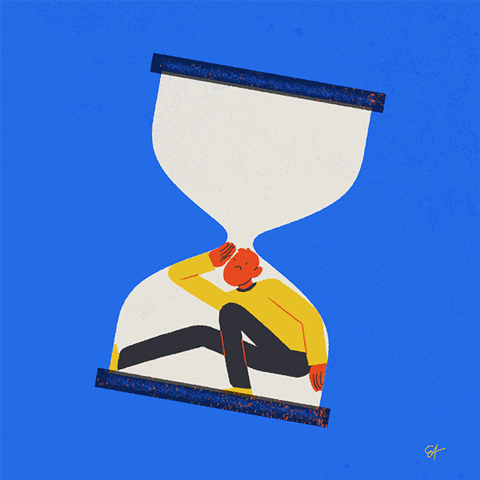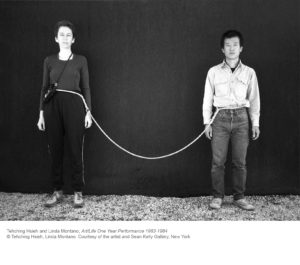Research Workshop:
Waiting, Persisting, Enduring
30th May 2018, 11-4
Birkbeck, University of London
This first workshop drew together eight speakers and 35 participants in the early stage of the Waiting Times project to map out the cultural and philosophical history of the concept of ‘waiting’ and other temporal experiences such as persistence, endurance, delay, and repetition, and varied forms of stilled, impeded or elongated time.
Speakers included:
Robin Durie, Senior Lecturer in the Department of Politics at Exeter. Robin works in political philosophy in the ‘Continental’ tradition, in particular on the philosophies of Bergson and Deleuze. He has published work on problems of time, change and difference. He is also involved in research in public policy, and specifically research for the NHS. He works with colleagues in the Health Complexity Group, based at the Peninsula Medical School, on processes of change in the NHS, as well as a third research strand on processes of social and urban regeneration in the South West and Cornwall.
Sejal Sutaria, postdoctoral Marie Sklodowska-Curie Fellow at Kings College London and the Heyman Centre for the Humanities at Columbia, USA. Sejal works on postcolonial approaches to twentieth-century global Anglophone literature with particular focus on British modernism, South Asian literature, and Dalit and indigenous writing. She has a Marie Curie grant to complete research on a monograph entitled Multipolar Modernity and the Making of Modernist Resistance in Britain and India. She is also at work on a collaborative project about Dalit protest literature in Indian vernacular languages.
Felicity Callard, Professor of Social Research and Director of the Birkbeck Institute of Social Research, in the Department of Psychosocial Studies. Felicity is a well-known figure in Medical Humanities, and critical geography, and has broad interests in the twentieth- and twenty-first history and geography of psychiatry, psychology and cognitive neuroscience, as well as on the practice, history and theory of interdisciplinarity. She is currently working on daydreaming.
Michael J Flexer is a post-doctoral researcher and engaged research fellow on the Waiting Times project, based in Wellcome Centre for the Cultures and Environments of Health, and the Department of English at Exeter. His doctoral study at the University of Leeds was in the semiotics of schizophrenia, cross-supervised by Professor Stuart Murray in the School of English and Professor Allan House in the Institute of Health Sciences. He has been working on a post-doctoral project with Professor Brian Hurwitz at King’s College, London, analysing post-WWII published medical case reports.
Pam Thurschwell is Reader in English at the University of Sussex. She is author of Literature, Technology and Magical Thinking, 1880–1920 (Cambridge University Press, 2001) and Sigmund Freud (Routledge Press, 2000; second edition, 2009) and is the editor of the volume Quadrophenia and Mod(ern) Culture with Palgrave Macmillan. She is also co-editor with Leah Price of Literary Secretaries/Secretarial Culture (Ashgate Press, 2005); with Nicola Bown and Carolyn Burdett of The Victorian Supernatural (Cambridge University Press 2004), and with Sian White of a special issue of Textual Practice on Elizabeth Bowen (2013). She is working on a book manuscript on modern adolescence and time, titled Keep your Back to the Future. Her work moves across a variety of writers and artists: Henry James, Bob Dylan, George Eliot, Elvis Costello, Bruce Springsteen, Morrissey.
Emily Grabham is Professor at the Kent Law School. She works on labour law, law and time, interdisciplinary perspectives on labour and value, and feminist legal theory. She is particularly interested in interdisciplinary approaches to legal analysis, drawing on methods and perspectives from legal anthropology, feminist theory, science and technology studies, and critical legal theory. Her monograph Brewing Legal Times: Things, Form and the Enactment of Law (University of Toronto Press, 2016) draws on perspectives from actor-network theory and legal anthropology, as well as empirical legal research, to think about how legal temporalities are ‘brewed’ in UK and Canadian Law. Case studies include debates about ‘progression’ and ‘likelihood’ in the context of HIV law, ‘work-life balance’ in labour law, and ‘transition’ in the context of transgender legal rights. Her current project investigates the development and rationale of ‘work-life balance’ laws as a means of resolving tensions in unpaid care and work. With Sian Beynon Jones, Emily co-ordinates the AHRC-funded network Regulating Time: New Perspectives on Regulation, Law and Temporalities. This interdisciplinary network investigates how law and regulation are shaped by dominant concepts of time.
Anhki Mukherjee is Professor of English and World Literatures at Wadham College, Oxford. Her first monograph, Aesthetic Hysteria: The Great Neurosis in Victorian Melodrama and Contemporary Fiction (Routledge, 2007), drew largely on Victorian literature and culture. Her second, What Is a Classic? Postcolonial Rewriting and Invention of the Canon (Stanford, 2013) asks how classics emanate from postcolonial histories and societies. Exploring definitive trends in twentieth- and twenty-first century English and Anglophone literature, she examines the relevance of the question of the classic for the global politics of identifying and perpetuating so-called core texts. Emergent canons are scrutinized in the context of the wider cultural phenomena of book prizes, the translation and distribution of world literatures, and multimedia adaptations of world classics. She is currently working on an interdisciplinary project that examines the institution of psychoanalysis and its vexed relationship with race and the urban poor in the context of three global cities: Mumbai, London, and New York.
Raluca Soreanu is a Reader in Psychoanalytic Studies at the University of Essex. Her academic work situates itself at the intersection between psychoanalytic theory and social theory. In psychoanalytic theory and technique, she is especially interested in the thinking of Sándor Ferenczi and Michael Balint, and, more broadly, in the works of the Budapest School of Psychoanalysis. In social theory, she works on theories of recognition, collective trauma and collective creativity. She has recently completed a Wellcome-funded fellowship on “Balint Groups” and the Patient-Doctor Relationship: The Social History of a Psychoanalytic Contribution to the Medical Sciences, and from 2017-2019 was a central member of the Waiting Times team. She is the author of Working-through Collective Wounds: Trauma, Recognition and Denial in the Brazilian Uprising (Palgrave, Studies in the Psychosocial Series)



